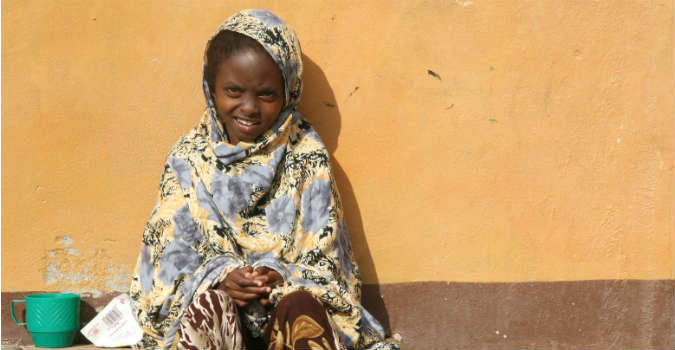On the tenth International Day against Female Genital Mutilation, LSE’s Colleen LaFontaine says that there are signs that success is within reach.
Today is a day of optimism around the world but also a day of pain, fear and violence for over 8,000 girls who today are at risk of being cut.
Today is the International Day against Female Genital Mutilation – also known as the day for Zero Tolerance to FGM.
The UN launched this awareness day ten years ago to increase the profile of its campaign against female genital mutilation (FGM). Unfortunately, even after ten years, the need for awareness, action and eradication, is still crucial.
FGM (sometimes referred to by the more neutral, less aggressive term cutting or FGC) involves the injury to or the partial or total removal of the female genital organs. Most often performed on girls between 7-10 years old, the practice varies, and can be performed on those young or old, newborns or women.
The consequences can be enormous – long and short-term health complications as well as psychosexual and physiological damage. Being cut is a physically and emotionally traumatic practice.
The origins of FGC are unknown – some think it goes back to the ancient Egyptians or perhaps to the Arab slave trade. Here in England during the mid-19th century Dr Issac Brown Baker became famous for promoting clitoridectomies to treat ailments ranging from epilepsy to hysteria. With the passage of time, FGC has been practiced in different countries by multiple cultures and religions for spiritual, health and aesthetic reasons.
Today many cultures and religions have abandoned FGC. It is illegal in Europe, North America and in over 15 countries in Africa. Yet, according to the United Nations Population Fund (UNFPA), at least 3 million girls are still at risk of FGC each year. That means over 8,000 girls may be cut today. Some will be cut here in the UK and many more will be cut in Africa.
You could see FGC as a cultural issue, perhaps one that people outside the culture should respect. But if you consider FGC from a human rights perspective – it is child abuse, it is a form of gender discrimination, of gender-based violence. In the most extreme cases FGC can violate a girl’s right to life. FGC infringes human rights treaties, the rights of children, the rights of women. And it is those rights we need to respect.
So what is being done? Quite a bit. From large international organisations like UNFPA and UNICEF to grassroots groups across Africa, and dozens of NGOs in between, knowledge is being shared and commitments are being made to eradicate FGC. The UN even believes that we can see the end of FGC with this generation.
Julia Lalla-Maharajh is the founder of the Orchid Project – a London-based NGO. She too is optimistic about the end of FGC. In December last year she was in Guinea Bissau. There Malla-Maharajh witnessed commitments from 144 communities to end FGC. Community commitments are important. FGC is a social norm. A norm that really only changes when a community, and the communities its daughters marry into, all agree to end the practice.
Ending FGC in a community involves everyone – mothers and fathers, cutters, community leaders, religious leaders and the girls themselves. FGC is connected to livelihoods, authority, respect and tradition. The context of the practice needs to be understood before real change can happen. It’s important to create an open, honest and non-judgmental environment to begin the conversation of ending this harmful cultural practice. This is the holistic approach the Orchid Project has found so successful.
The Orchid Project partners with Tostan – a community-led development organisation working in East and West Africa. The FGC abandonment objective is embedded in Tostan’s 3-year community empowerment programme. The programme collaborates with the community and explores human rights, sustainability, income-generation and more, including gaining commitments to end FGC.
Tostan shared the news of the first ever regional declaration on FGC in Southern Senegal. 427 communities committed to end FGC and child/forced marriage in the landmark declaration. To date, 5,500 communities in Senegal have abandoned cutting their daughters. That equates to hundreds of thousands of girls who may never be cut.
This is a massive success and a real cause for optimism. But that success needs momentum. Momentum that needs you to keep it moving. Today is the International Day Against FGC. A day of zero tolerance. A day when you can do something to end FGC. Visit the Orchid Project website or UNFPA. Learn about FGC. Share what you learn. Support an organisation that’s fighting FGC.
Be a part of the conversation that DFID is hosting on Google hangout. Do something today and be a part of the generation that ends FGC.
Colleen LaFontaine is the co-founder of Present Purpose Network and Collaborate for Africa – a London based networking group. She can be found @colleeninlondon and c.lafontaine@lse.ac.uk





